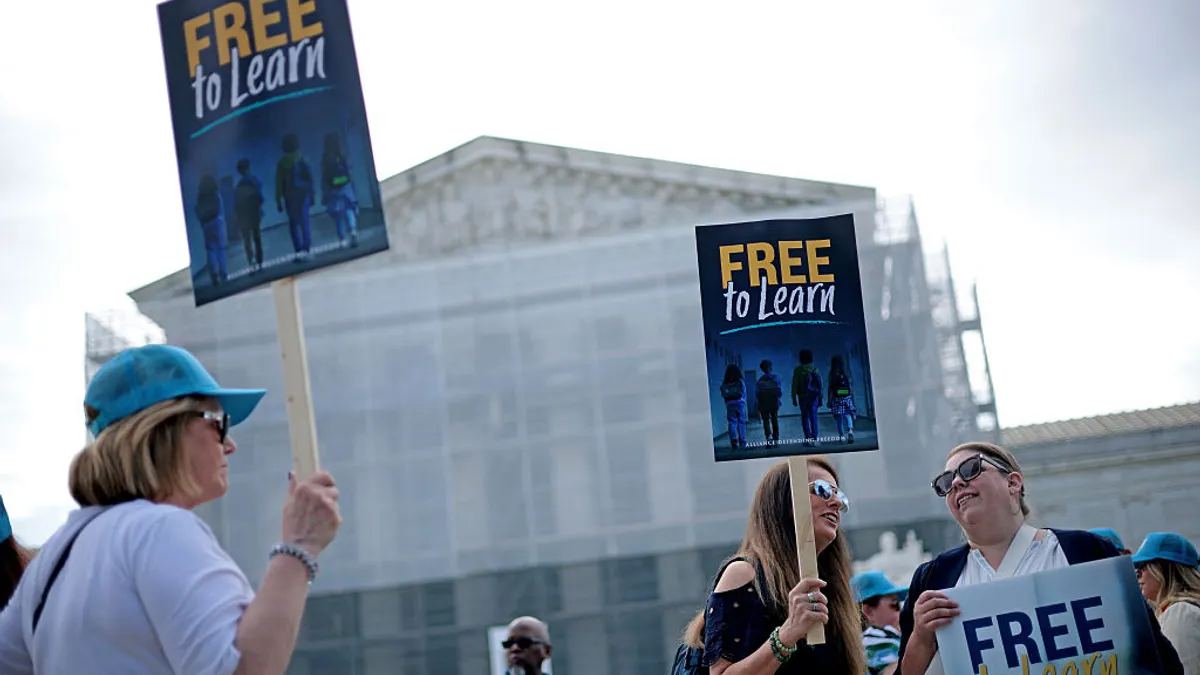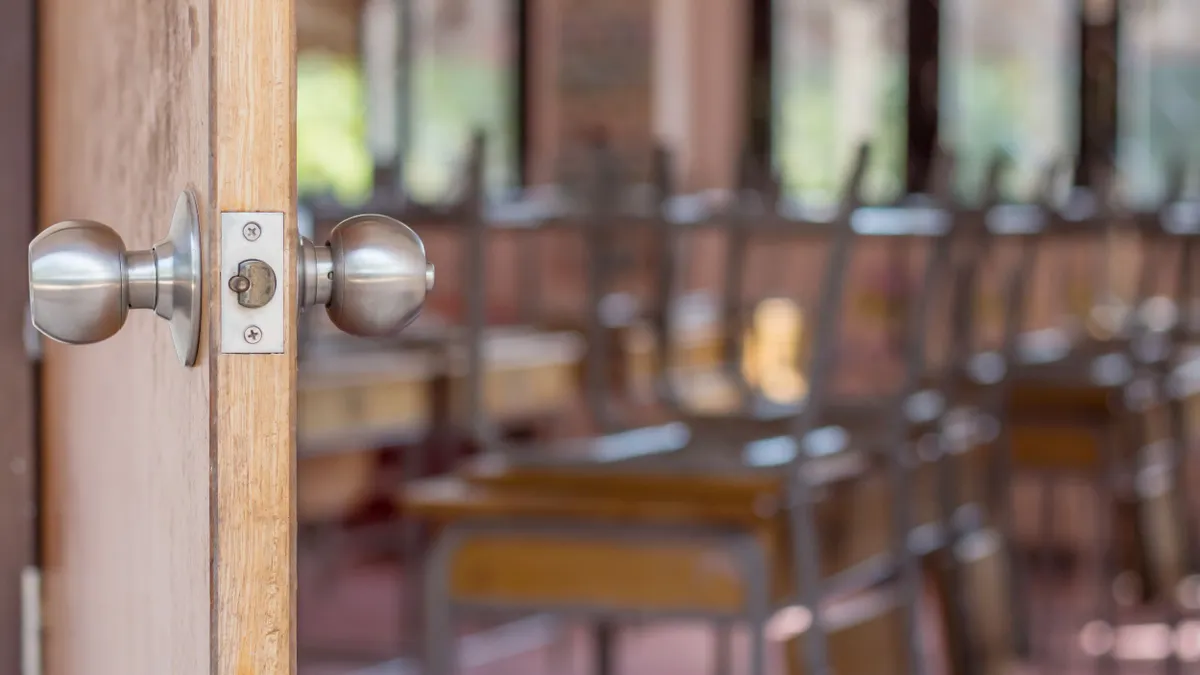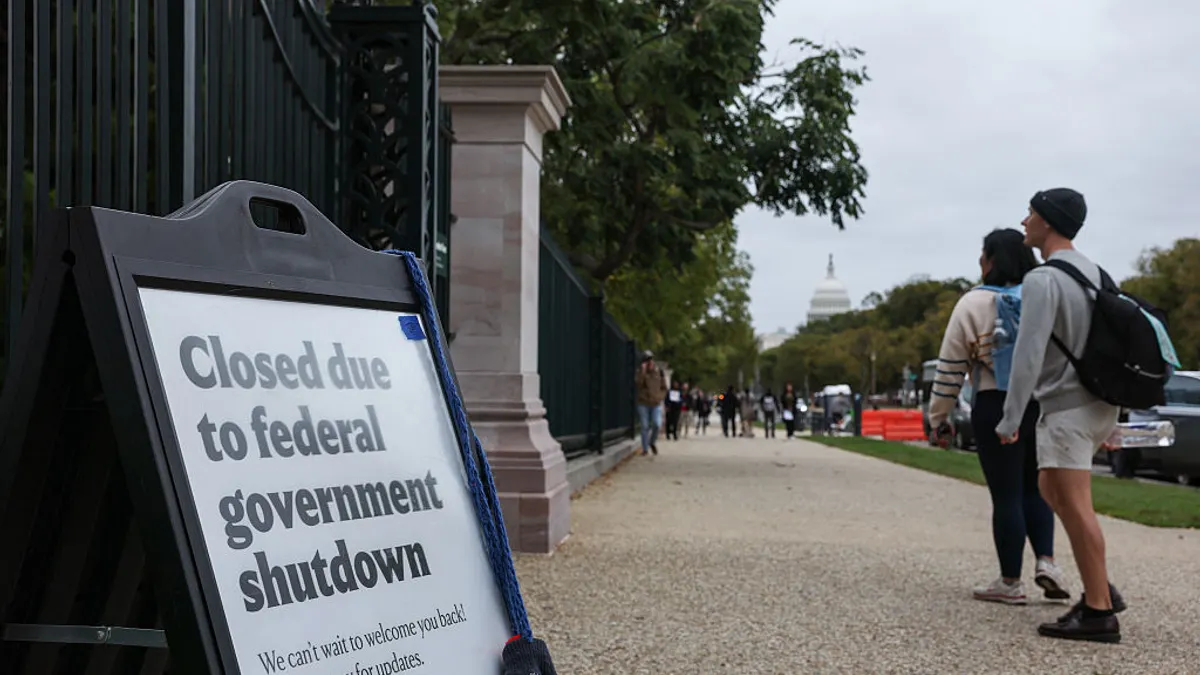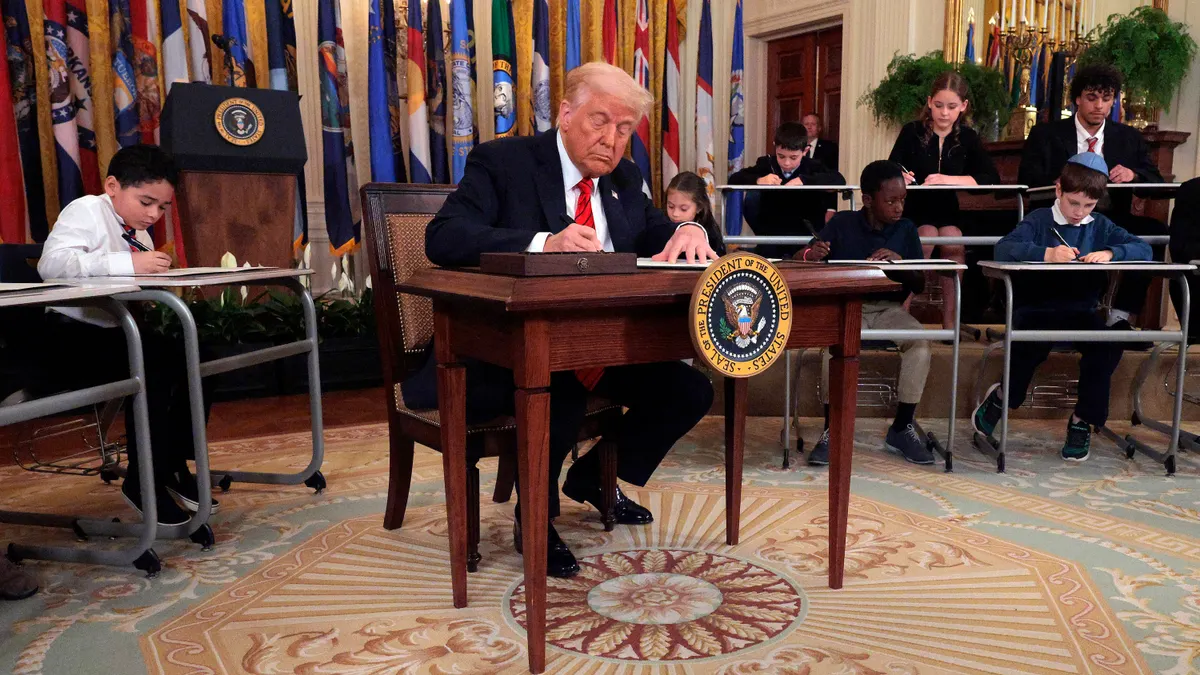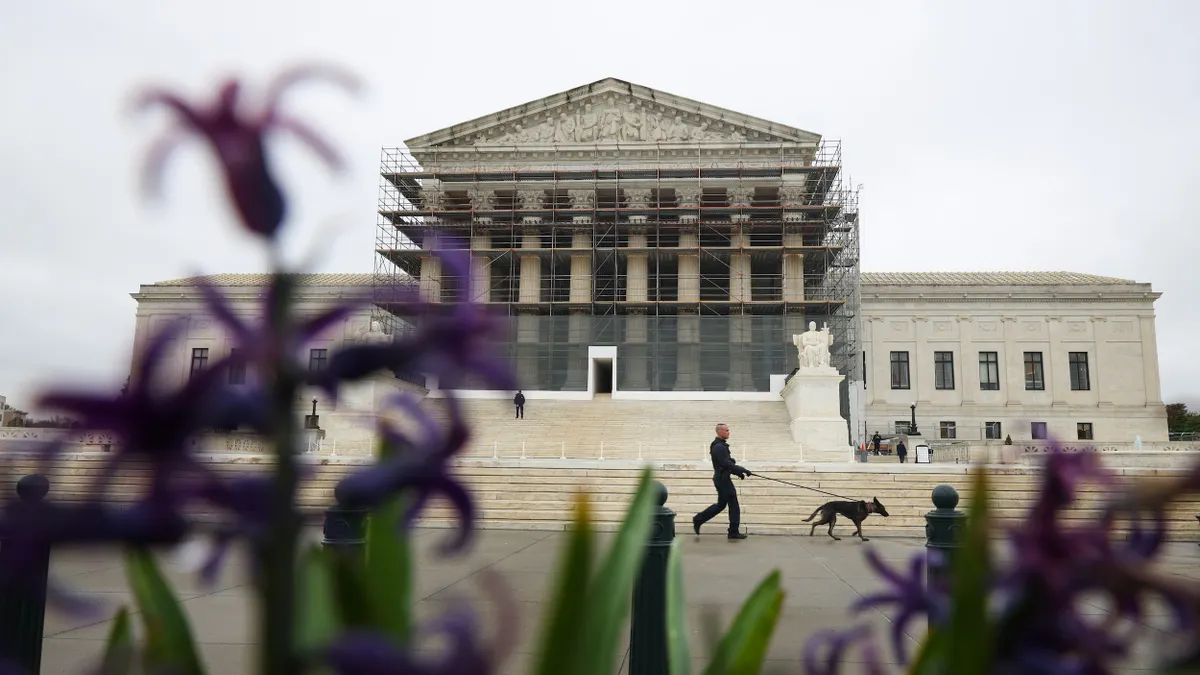The nation's first religious public charter school will not be able to open its doors in Oklahoma after a 4-4 split in the U.S. Supreme Court on Thursday morning upheld the state supreme court’s ruling that blocked the school.
The high court did not issue written opinions in the case.
In its June 2024 ruling in St. Isidore of Seville Catholic Virtual School v. Drummond, a six-justice majority of the Oklahoma Supreme Court sided with state Attorney General Genter Drummond, writing that the virtual public charter school’s creation would violate the Oklahoma Constitution and the First Amendment’s Establishment Clause. St. Isidore was originally scheduled to open for the 2024-25 school year.
“Enforcing the St. Isidore Contract would create a slippery slope and what the framers’ warned against — the destruction of Oklahomans’ freedom to practice religion without fear of governmental intervention,” the Oklahoma court’s majority wrote in the decision.
If the U.S. Supreme Court had ruled in favor of St. Isidore, the high-profile religious liberty case could have opened the door for a wave of other publicly funded religious schools. The split decision, however, leaves no national precedent on the question of whether religious schools can participate in public charter school programs without violating the First Amendment’s Establishment Clause.
Justice Amy Coney Barrett recused herself from the case.
St. Isidore is “disappointed” that the decision to block the school’s opening was upheld “without explanation” from the U.S. Supreme Court, said Archbishop of Oklahoma City Rev. Paul Coakley and Bishop of Tulsa Rev. David Konderla, in a joint statement Thursday.
Given this latest ruling, Coakley and Konderla said they are exploring alternative options to offer a virtual Catholic education “to all persons” in Oklahoma and remain committed to parental choice in education.
The Oklahoma Statewide Charter School Board, which initially approved St. Isidore’s contract in October 2023, will respect the Supreme Court’s authority following its split decision to uphold the Oklahoma Supreme Court’s ruling, said the board’s Executive Director Rebecca Wilkinson, in a Thursday statement.
“The split decision of the court affirms this was indeed a complicated matter with a wide spectrum of views on the appropriate relationship between education, public funding, and religious institutions in our state and country,” Wilkinson said. “The Statewide Charter School Board remains committed to upholding our constitutional responsibilities and the highest standards of transparency and excellence. We will move forward in that vein, ensuring our policies and practices reflect both the rule of law and commitment to all students.”
Drummond said in a Thursday statement that the Supreme Court’s decision is a “resounding victory for religious liberty and for the foundational principles that have guided our nation since its founding.”
“I have always maintained that we must faithfully uphold the Constitution, even when it requires us to make difficult decisions,” Drummond said. “I will continue upholding the law, protecting our Christian values, and defending religious liberty — regardless of how difficult the battle may be.”
Oklahoma Superintendent of Public Instruction Ryan Walters spoke out against the Supreme Court’s move, adding in a Thursday statement that he will always oppose “religious discrimination” and that all children in Oklahoma should be free to choose the best school to attend, whether that’s “religious or otherwise.”
“Allowing the exclusion of religious schools from our charter school program in the name of 19th century religious bigotry is wrong,” Walters said in the statement sent by First Liberty Institute, a nonprofit law firm focused on First Amendment cases on religion.
Still, it seems likely the issues involving the First Amendment’s religious clauses will eventually return to the U.S. Supreme Court, “perhaps in a case better suited for resolution,” said Thomas Jipping, a senior legal fellow in the Edwin Meese III Center for Legal and Judicial Studies at The Heritage Foundation, a national conservative think tank.
While it may not be the last time the Supreme Court takes on a case over religious charter schools, “today’s outcome offers clarity for families and educators,” said Starlee Coleman, president and CEO of the National Alliance for Public Charter Schools, in a statement.
About 8.1% of all public schools are charters. These schools serve 3.7 million enrolled students, of whom two-thirds are from low-income, Black or Latino communities, according to NAPCS.
“Charter schools were launched to offer more public-school options,” and families opt for charters because they are “innovative, student-centered learning environments” that are also accountable to taxpayers, Coleman said. “With this legal clarity, we can move forward with renewed focus on expanding access to high-quality public charter schools for every family nationwide.”


